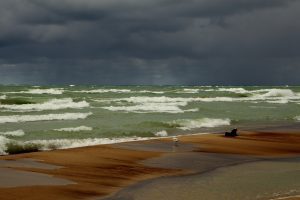
Post Archives
Category: Hazard Resilient Coastal Communities
Scroll down to view posts

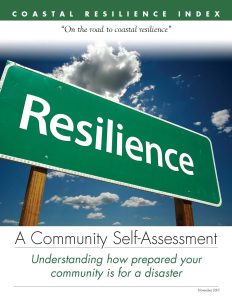
Coastal Community Resilience Index’s success inspires development of additional tools
Due to the incredible sucess of the Coastal Resilience Index, Mississippi-Alabama Sea Grant is working with several partners to pilot test the Fisheries Resilience Index and the Tourism Resilience Index. The Fisheries Index focuses on indicators important to commercial and recreational fishermen, seafood processors and marina owners. The Tourism Index addresses 10 categories, including communications, marketing, disaster operations and workforce issues.
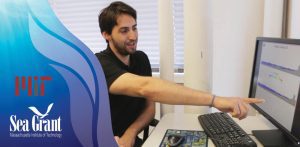
MIT Sea Grant Researchers Hope to Mitigate Coastal Flooding Problems with New Model
MIT Sea Grant Assistant Director for Research Stefano Brizzolara and visiting PhD student Riccardo Angelini Rota are working on a new numerical model to simulate the complex physics that happen in the near-shore region to waves. Due to climate change, they explain, the level of the ocean will rise significantly in the next fifty to one hundred years. Their goal is to simulate the risks of flooding in different areas of the Northeast region in advance in order to be prepared and react with mitigation or adaptation strategies. The model is based on a Smoothed Particles Hydrodynamic (SPH) solver, which helps them reproduce the hydrodynamic phenomena in coastal areas, specifically in the surf region. Brizzolara and Rota plan to reproduce problems like over-topping in a sea wall or in a sea structure and the run up of waves. They explain that the reason this new model is so unique is because many of the models that currently exist are able to arrive quite close to the coast but not in the particular region where the non-linear phenomena they want to record occur. With this new numerical method, the researchers seek to extend the predictions of the current numerical models to the areas more affected by inundations and flooding.
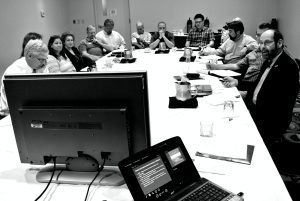
Extension Exchange Offers Insights into Storm Recovery
Louisiana Sea Grant passes along lessons learned from Hurricane Katrina to those impacted by the aftermath of Hurricane Sandy.

It’s Hurricane Preparedness Week!
Learn how Sea Grant programs across the US help communities prepare for hurricanes

Hurricane Preparedness Week: Spotlight on Hawaii Sea Grant Extension Agent Dennis Hwang
Dennis Hwang combines his science and law background to concentrate on implementing science into decisions of the community so that hurricane, tsunami, flood, erosion, wind and earthquake impacts are mitigated. He authored the Hawai'i Coastal Hazard Mitigation Guidebook, which is used in the land use process in Hawai'i.
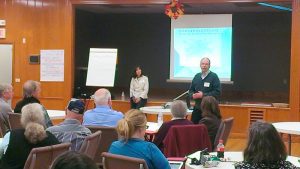
Hurricane Preparedness Week: Spotlight on Maine Sea Grant Extension Associate Kristen Grant
As Southern Maine Marine Extension Associate, Kristen has worked in that region of the state since 1999. Her office in Wells is housed at the Wells National Estuarine Research Reserve, facilitating partnerships with NOAA colleagues there. The majority of Kristen's work focuses on the interactions between the people, the resources, and the ecosystems of the coast.
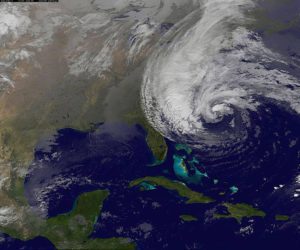
Hurricane Preparedness Week: Spotlight on New York Sea Grant Communications Specialist Paul Focazio
As New York Sea Grant's Web Content Manager, Paul Focazio oversees the development and production of New York Sea Grant's Web site, e-newsletter (Currents) and all social media platforms. The program's virtual presence not only includes downloads of NYSG's Coastlines newsletter, for which Focazio writes, but also features sub-sites for all extension staff and a number of special research and education initiatives.
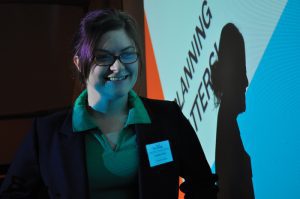
Hurricane Preparedness Week: Spotlight on Texas Sea Grant Extension Agent Heather Wade
As Texas Sea Grant’s Coastal Planning Specialist, Heather Wade helps communities on the Texas coast plan for the future. With a toolkit that includes the Coastal Resilience Index, weTable and Community Health and Resources Management (CHARM) model, she leads community leaders through workshops that help them determine their readiness and plan for future needs with respect to coastal hazards, green infrastructure, water quality impairment and other issues related to sustainable development.
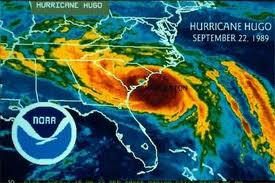
Hurricane Preparedness Week: Spotlight on South Carolina Sea Grant funded Researcher Scott Schiff
Scott Schiff, Ph.D. is a Professor of Civil Engineering at Clemson University. His areas of interest are: earthquake and wind engineering, wood engineering, low-rise building engineering, bridge engineering, and experimental investigation of structures.
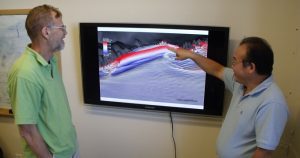
Hurricane Preparedness Week: Spotlight on MIT Sea Grant funded Researchers Robert Beardsley and Changsheng Chen
Robert Beardsley is a scientist emeritus of physical oceanography at the Woods Hole Oceanographic Institution (WHOI), and Changsheng Chen leads the Marine Ecosystem Dynamics Modeling Research Laboratory at UMASS Dartmouth’s School for Marine Science and Technology.
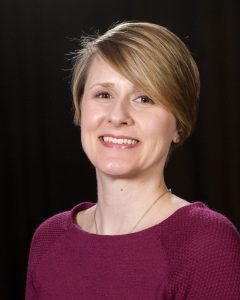
Hurricane Preparedness Week: Spotlight on Kodi Monroe
Kodi Monroe is a Weather and Climate Extension Agent at the NOAA-funded Cooperative Institute for Mesoscale Meteorological Studies (CIMMS) and is affiliated with the National Severe Storms Laboratory (NSSL) in Norman, Oklahoma.
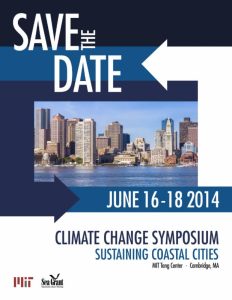
MIT Sea Grant Hosts a Climate Change Symposium on Sustaining Coastal Cities
Leaders in academia, government, and private industry will address concerns for change in sea level, storm surges, extreme precipitation and flooding and options for adapting to these risks. With shared knowledge and increased understanding, the objective of this conference is to identify ways in which representatives of the various sectors in attendance may wisely use, manage, and protect coastal areas now and in the future.
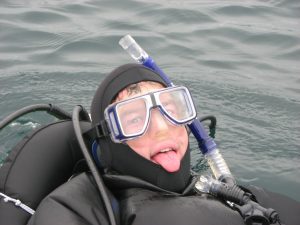
Tsunami Preparedness Week: Spotlight on Sea Grant Extension Agent Ian Miller
Dr. Miller is Washington Sea Grant’s coastal hazards specialist, working out of Peninsula College in Port Angeles as well as University of Washington’s Olympic Natural Resources Center in Forks. He works with coastal communities on the Olympic Peninsula to increase their ability to plan for and manage coastal hazards, including tsunami, chronic erosion, coastal flooding and hazards associated with climate change.
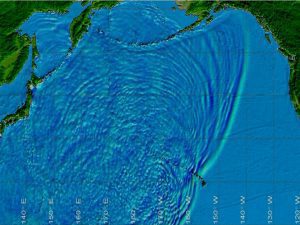
Tsunami Preparedness Week: Spotlight on Sea Grant Researcher Dr. Kwok Fai Cheung
Dr. Kwok Fai Cheung's area of expertise is ocean wave modeling, which includes tsunamis. Sea Grant funded his research work on tsunami model development. His team worked with UNESCO to distribute the resulting model and provide training workshops to universities and government agencies around the world.

Tsunami Preparedness Week: Spotlight on Sea Grant Extension Agent Jamie Mooney
At Washington Sea Grant, Jamie provides expertise on emergency preparedness, hazard mitigation, and resilience for coastal communities. Jamie also serves as Washington Sea Grant’s liaison to the Pacific Marine Environmental Laboratory, where she supports tsunami education and outreach in coordination with the Washington Military Department’s Emergency Management Division.

Tsunami Preparedness Week: Spotlight on Sea Grant Extension Agent Pat Corcoran
Patrick Corcoran is a coastal natural hazards specialist at Oregon Sea Grant based in Astoria, OR. His goal is to help coastal communities become more resilient to natural hazards.
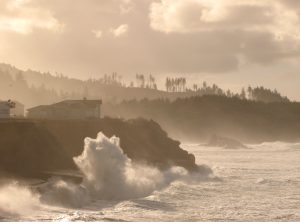
Oregon Leads National Survey That Reveals Coastal Concerns over Climate Change
New survey led by Oregon Sea Grant across eight coastal states found that that while the American public may be divided about whether climate change is happening, coastal managers and elected officials are not. Three quarters of coastal professionals surveyed – and 70% of all participants – said they believe that the climate in their area is changing.
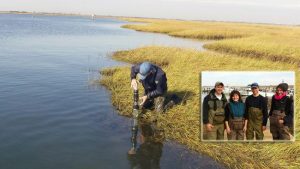
Sandy: The Science Behind the Storm
New York Sea Grant provided real-time information on the track, intensity and aftermath of Superstorm Sandy via social media when other outlet lost power. The program's award-winning year-long "science behind the storm" story series and related YouTube clips reached over 14,300 visitors on Facebook alone.
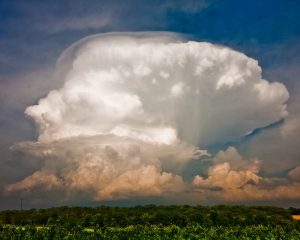
A Hard Rain’s Gonna Fall
Backed by University of Wisconsin Sea Grant, a grad student will use a concept called storm transposition to show Wisconsin communities why they may want to invest in climate change resilience.
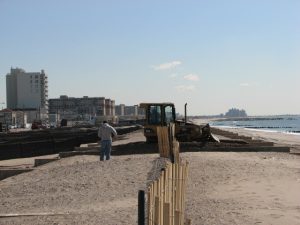
NOAA Sea Grant Announces Projects for $1.4M Coastal Storm Awareness Program
Connecticut Sea Grant, New Jersey Sea Grant, and New York Sea Grant have awarded funds totaling $1.4 million to support ten social science research projects to improve community understanding and response to coastal storm hazard information as part of NOAA Sea Grant’s Coastal Storm Awareness Program.
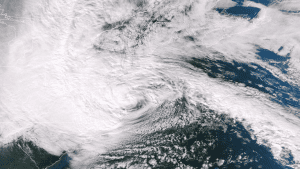
Sea Grant Funds Projects to Improve Public Hazard Response
Nine project were selected from New Jersey, New York and Connecticut Sea Grant Connecticut Sea Grant, New Jersey Sea Grant, and New York Sea Grant have funded
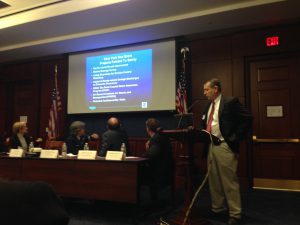
NOAA’s
 Role 
in
 Supporting 
Coastal
 Communites

 Before, During
 and
 After
 a Coastal Storm
Staff and stakeholders of the National Oceanic and Atmospheric Administration (NOAA) held a congressional briefing on NOAA’s role in supporting coastal communities before, during, and after Sandy’s impact.
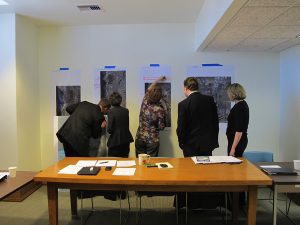
Adapting to Sea Level Rise in a Coastal Megacity
In an effort to safeguard valuable areas along the coastline, the City of L.A. engaged the University of Southern California (USC) Sea Grant Program to develop AdaptLA, a city-led science-based and stakeholder-supported adaptation planning process and vulnerability assessment
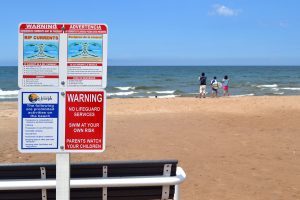
Federal and Private Partners Join Forces to Break the Grip of the Rip
A partnership between Sea Grant, the National Weather Service, and the United States Lifesaving Association will facilitate the collection of real-time data by lifeguards to improve rip current forecasts
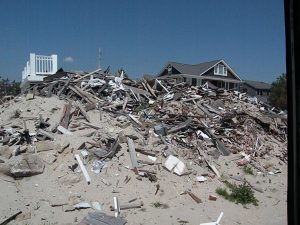
A Year After Sandy: Sea Grant and Coastal Storm Awareness
The Sea Grant network has been actively engaged in both the short term and long term recovery for those impacted by Sandy.
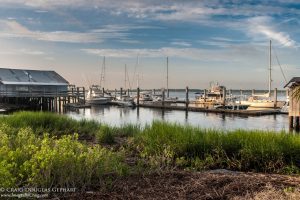
Sea Grant and UGA help communities plan for the future
Georgia Sea Grant, University of Georgia, and North Carolina Sea Grant are launching a project to help St. Marys, GA and Hyde County, NC plan for sea level rise, increased coastal flooding and intensified storm surges.
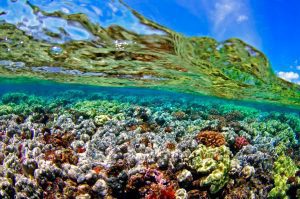
Sobering findings from new Sea Grant climate study
A new climate study from University of Hawai’i Sea Grant found that most of the earth will routinely experience a climate unlike anything on record by 2047. More shocking, is the finding that the tropics may experience these unprecedented temperatures in as early as seven years.
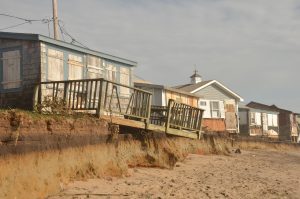
Coastal Communities Sharing Ways to Adapt to Climate Change
Helping diverse coastal communities adapt to a wide array of impacts from climate change is a challenge. Learn how Connecticut Sea Grant is making things a little easier by compiling the best practices from 34 communities along the northeast coast, from Maine to Virginia, and displaying them in an interactive map.
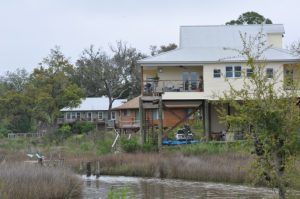
The Coastal Community Resilience Index
Gulf of Mexico Alliance, with the the Mississippi-Alabama Sea Grant Consortium (MASGC) and developed the Coastal Community Resilience Index (CRI) as a tool to help Gulf communities increase awareness of their susceptibility to natural hazard events.
NOAA Sea Grant Funding Supports Community Climate Adaptation
The winning projects of the climate adaptation initiative represent a diverse array of regions and challenges, and highlight to power of communities working together to address far-reaching challenges, partnering with universities and government to ensure the best science available is used to inform public decisions.

University of Hawai’i Sea Grant Helps Coastal Communities Prepare for Hazards
Dennis Hwang, Coastal Hazard Mitigation Specialist at University of Hawai’i Sea Grant developed the Hawai’i Coastal Hazard Mitigation Guidebook to address the lack of widely publicized, reliable guidance for building along the coast to reduce vulnerability. Due to the wide spread popularity, 7 states across the country developed similar books specific to their community.
Forecasting Sea level Rise in Maryland
Scientists release new projections for future sea level rise for the Chesapeake Bay and for Maryland, Virginia and nearby Mid-Atlantic coastal areas. In these, regions sea levels are rising faster than the global average, the result of subsiding lands, a slowing Gulf Stream and melting land ice in Antarctica.
For more information on this study see Maryland Sea Grant
University of Hawai’i Sea Grant Receives Award for Hurricane Preparedness
UH Sea Grant was selected to receive the 2013 Dr. Chiu Award for Excellence in Hurricane Preparedness for its efforts to make Hawai‘i’s communities safer through its excellent work on the Homeowner’s Handbook to Prepare for Natural Hazards.
Texas Sea Grant researchers help beach visitors avoid the grip of the rip
Rip currents kill more than 100 people every year on U.S. beaches. Sea Grant funded researchers are studying what the public knows about rip currents and how to better educate people to spot these dangerous currents.
University of Wisconsin Sea Grant creates Great lakes Climate Adaptation Checklist
University of Wisconsin Sea Grant Institute has released the Great Lakes Coastal Community Climate Adaptation Checklist. This resources was created by Outreach Specialist David Hart and Grad Student Evan Murdock.
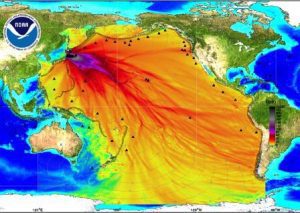
Building Hazard Resilience in Coastal Communities
Tsunamis have been a reality for coastal communities for as long as humans have lived near the shore…